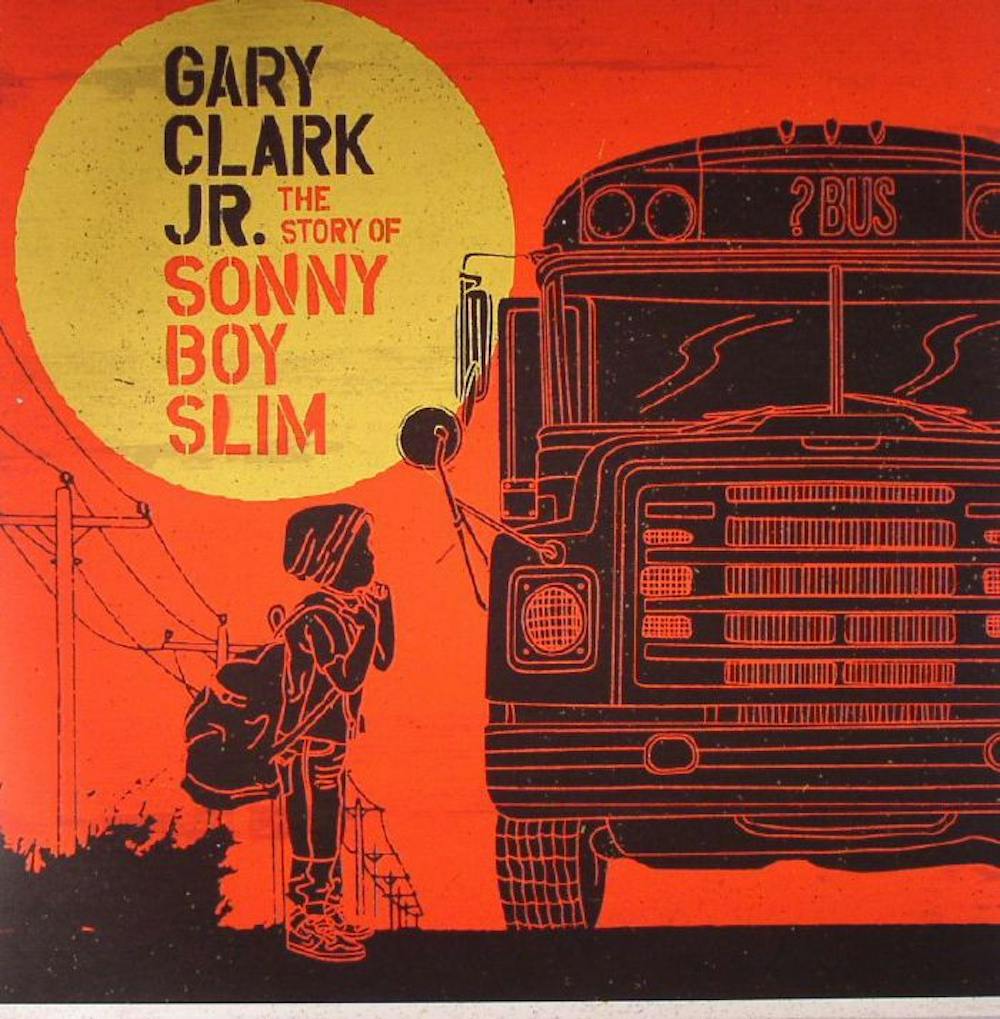4/7
via Warner Brothers Records
https://www.youtube.com/watch?v=kvMd9KJrpg8
Gary Clark Jr. has been called "The New Hendrix" by more than a few publications since he exploded onto the scene in 2010. Those kinds of parallels create enormous expectations. Creativity gets smothered, and an artist's work will always be unfairly compared to the greats that came before. Gary Clark Jr. is not the new Hendrix; maybe insofar as he's a black guitarist who predominately plays blues music. I think a more apt framework to view Clark through is the Eric Clapton window. Clapton, who arguably gave the Austin-born guitarist his big break in 2010 by inviting Clark to play at his Crossroads Guitar Festival, hit the scene as a hotshot guitar player. He eventually resented the title of guitar virtuoso, and much of his solo output downplays his guitar playing prowess.
Clark's career has unfolded in a similar vein: his major label debut, 2012's Blak and Blu, was far more eclectic than critics could've imagined. The snarling blues numbers were there; "Bright Lights" remains Clark's signature song. But forays into funk, R&B, and even pure soul music made the album a sampler of Clark's songwriting talents. But the album still painted Clark as something of a Clapton-esque figure, a reluctant guitar slinger that had more to offer than fretboard pyrotechnics.
https://www.youtube.com/watch?v=QFajvN0IFyo
Clark's second major-label album The Story of Sonny Boy Slim (Clark released several albums and EPs on small local labels dating as far back as 2004) essentially serves as a sequel to Black and Blu. The album is just as stylistically diverse as its predecessor; Clark just sounds more confident this time around. Part of that might be the semi-autobiographical nature of some of the songs (the title is an amalgamation of nicknames Clark accrued over the years). Part of it might be the absence of an outside producer; Sonny Boy Slim was self-produced, and Clark plays the majority of the instruments himself. Part of it might just be that these songs are good. There are plenty of great guitar players out there. What sets Clark apart from the pack, and what elevated him above the crowded Austin, TX, scene he emerged out of, is the simple fact that he writes such good song and he knows it.
The 1-2 punch of opener "The Healing" and "Grinder" might be the album's most overt display over Clark's guitar prowess. Over thunderous arrangements, Clark's guitar screams in direct opposition to his smooth, sultry voice. "The Healing" fills a similar role to "Bright Lights": it's the album's mission statement, with Clark announcing "This music is my healing" over visceral guitar stabs. "Grinder" is the heaviest song on the album, and ends in a flurry of fuzzed out notes.
https://www.youtube.com/watch?v=5ffEpbvAcG4
But while those songs seemingly announce Clark's every intention to storm through the album, these songs don't set the tone for the rest of the album. Instead, the spaced-out groove of "Star" and the gospel organ that adorns "Our Love" position this album as another eclectic affair. The probably-too-long acoustic strum of "Church" gives way to the horn-adorned funk of "Hold On", with Clark admonishing "hold on, we're gonna make it" before ripping into a frenzied guitar solo. "Cold Blood" also pulses on a groovy horn arrangement, with spanky guitar and soulful falsetto vocals. Album highlight "Wings" is essentially the inverse of Blak and Blu bonus track "Soul"; the guitar melody that began that track is lifted directly into "Wings", and now serves as the vocal hook. Paired together, the two songs compliment each other perfectly, with "Soul" serving as the sweetly melancholic counterpart to the more world-weary "Wings".
Clark largely eschews massive solos on this album; he'd much rather you focus on the groove, on the arrangements, on his gorgeous falsetto. He uses the instrument as way to color his songs. Songs like "Star" and sprawling, synth-adorned closer "Down To Ride" eschew Clark's guitar hero title altogether. Those songs are pure groove. The solos that do pop up are reigned in, song-serving. The windows-down breeziness of "Down To Ride" fades out in a shower of notes, but the cinematic scope of the whole arrangement is the song's driving force. It's an album highlight, and totally indicative of Clark's desire to move beyond his guitar god status.
https://www.youtube.com/watch?v=eA6i5oaTkTU
Clark might not be saying anything new or groundbreaking lyrically, and he's also not necessarily breaking into any innovative new sonic territory. But he's shown a large degree of personal growth, as well as an indication that he's got far more to offer listeners than ripping guitar solos and fuzzed-out riffs. And The Story of Sonny Boy Slim, while less eclectic than its predecessor, shows that Gary Clark Jr. isn't ready to adhere to the expectations or labels pressed upon him. He might never be (at least on record). And that's alright, because it's important to let modern artists exist independently of their influences and forerunners. Clark is well on his way to carving out his own sonic niche, and The Story of Sonny Boy Slim is a fine step in the right direction.
Key tracks: "The Healing", "Grinder", "Wings", "Down to Ride"





